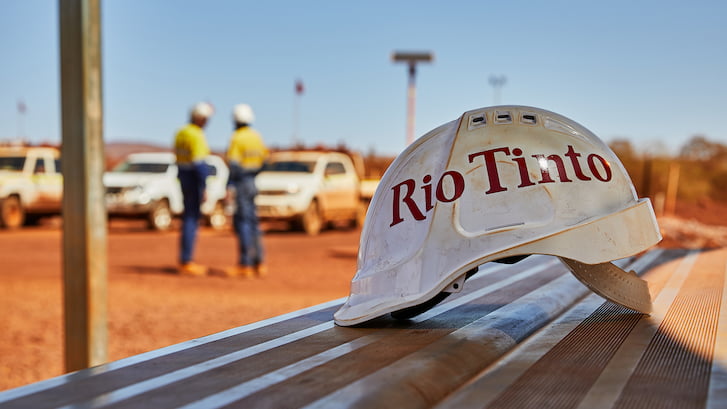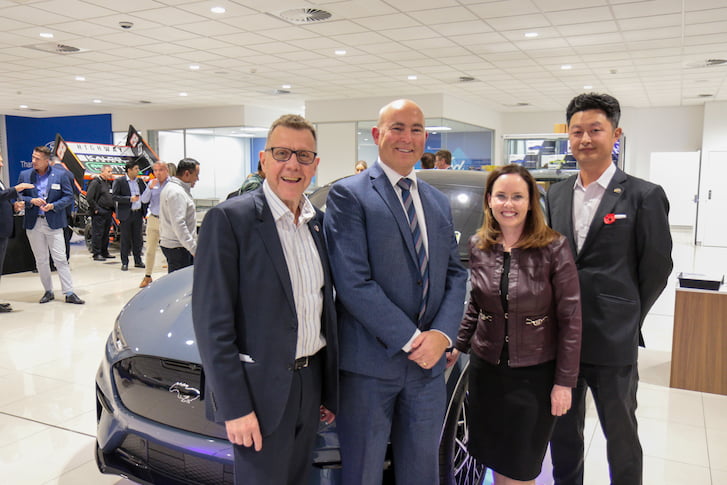Australia’s largest co-operative and a leader in the country’s grain industry is “structuring for success” with gender diversity a crucial part of staring down global competitiveness challenges.
CBH Group transported about 13.2 million tonnes of grain from the Wheabelt to ports around the world last year and in 2016-17 it delivered a record 16.6 million tonne crop.
But the 85-year-old grower owned and controlled organisation – which creates about 3000 jobs each year receiving and exporting about 90 per cent of the state’s grain harvest – will be the first to admit that creeping competition from The Black Sea and Argentina means there has never been a more critical time to have the best people driving its future success.
CBH chairman Wally Newman told BP Digital that the appointment of Kondinin grower, Natalie Browning, to the board earlier this year was an essential milestone for gender diversity and a critical part of the co-operative’s long-term competitiveness strategy.
Browning was the first ever woman to be appointed as a grower member director on the CBH board, which is made up of 12 directors, including three independent directors.
Previously there had been two independent female directors – gender equality advocate Diane Smith-Gander and professional director Samantha Tough.
Alongside Browning, CBH’s lead management team includes general manager grower and external relations Brianna Peake, general manager transformation and technology Stephanie Unwin and general manager people and performance Kelly McKenzie.
In 2006, there was just one woman in an executive management role.
Newman says CBH needed people in leadership roles that had the capabilities the organisation required to remain competitive in an increasingly challenging market but obtaining a diversity on the organisation’s board is dependent on the membership.
“It’s got nothing to do with being a boys’ club and it’s more to do with our membership. The very first principle of cooperation is democratic elections by [CBH] members, not prejudiced to race, gender, religion,” he says.
“Ultimately people will vote for the person they think will help put the most dollars in their pockets at the end of the day.
“They take account about who is the most capable at representing their business interests.”
For Browning – who along with running a farm is raising a family, studying business and accounting at university, completed an executive leadership course, was a former member of the CBH Growers’ Advisory Council, as well other non-profit boards – getting on the CBH board is just an extension of her lifelong commitment and passion for agriculture.
She says there was an increased expectation to prove herself as women amongst her male peers but her bona fide credentials had been in place for many years working on the farm.
“Since I started farming as a teenager I’ve been hands-on operating all of the machinery, and after I got married we jointly administered the business,” she says.
“I’ve always been out and about at all the community and farming events – attended all the meetings and always been hands-on across all the aspects of farming.
“So, I think, when it came time to stand for the board the growers already had a good feel for who I was.
“I was just myself really, and it all worked out in the right way.”
Browning says her two years with GAC had fuelled her enthusiasm to play a leading role in the long-term future of CBH.
“I wanted to contribute more, and I’m a firm believer that the membership base selects the board, and if you’re going to have a diverse board, we need various people to stand.
“It’s about building confidence and credentials starting at a community base-level so that we can facilitate that diversity going forwards.
Browning says her decision to get involved had nothing to do with being female.
“You don’t just get out of bed one morning and decide to run for the position on the board of a multibillion-dollar business,” she says.
“We’ve got an ongoing challenge to continue to drive efficiency in business, which has to be an ongoing challenge, so it’s essential that the board is reflective of the membership base and gender is part of that diversity but also age, experience, professional skills.
“We need to make sure that we’ve got leadership capabilities being built up in our regional communities and make sure that we’ve got that capacity to ensure that succession [planning] is there with new potential directors.”
Read more about gender equity in parliament here and women in business here.
►Need help creating a diverse and inclusive workplace? Contact the Workplace Consulting team today on (08) 9365 7730 or visit cciwa.com






